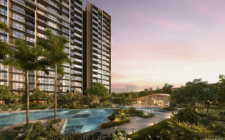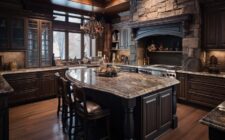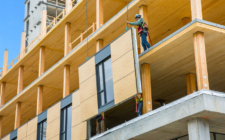In a world increasingly focused on sustainable living and reducing our environmental footprint, the dream of building a home often comes with a significant carbon conscience. Traditional construction methods are notoriously wasteful, generating tons of debris that ends up in landfills. This reality has driven a renewed interest in building practices that are both efficient and environmentally responsible. It is in this context that the modern log cabin kits for sale has emerged as a surprisingly powerful solution, offering a path to homeownership that is not only accessible but also remarkably eco-friendly. By leveraging precise engineering, pre-cut materials, and a focus on natural resources, a log cabin kit is a testament to how minimizing waste can lead to a more sustainable and beautiful home.
The traditional home construction process is an untidy and inefficient process. It involves ordering bulk lumber that often needs to be cut on-site, leading to a significant amount of scrap wood, sawdust, and offcuts. This waste, combined with leftover drywall, insulation, and other materials, constitutes a large portion of construction and demolition debris. The logistics of a traditional build also require multiple deliveries of various materials over a period of many months, increasing fuel consumption and carbon emissions. This is the paradigm that log cabin kits are designed to disrupt.
Sustainable Forestry: The Source of the Material
The environmental story of a log cabin kit begins long before the logs arrive at the build site. Reputable log cabin kit companies are committed to sustainable forestry practices. They source their timber from responsibly managed forests, where trees are harvested in a manner that ensures forest health and long-term viability. This often involves replanting programs, selective cutting, and protecting biodiversity.
By choosing a log cabin kit from a company with a strong commitment to sustainability, a homeowner is supporting an industry that views forests as a renewable resource rather than a finite one. The logs themselves, as a building material, are inherently sustainable. Wood is a natural, biodegradable material that, unlike concrete or steel, requires far less energy to produce. It also acts as a carbon sink, sequestering carbon dioxide from the atmosphere throughout its life, from the forest to the finished home. This makes a log cabin one of the most eco-friendly building choices available.
Energy Efficiency: A Natural Insulator
The unique thermal properties of logs contribute significantly to the long-term energy efficiency of a log cabin. Wood has a high thermal mass due to its dense cellular structure, and this is why wood can absorb and store heat. During the day, the logs will take in heat in a cold climate and slowly give it out at night, aiding in keeping the indoors cool enough. In a hot climate, the logs will insulate the home from the sun’s heat, keeping the interior cool.
This natural insulating quality, combined with the tight-fitting design of modern log cabin kits, creates a highly energy-efficient structure. A log cabin is not just built sustainably; it operates sustainably, offering a continuous stream of environmental benefits.
Conclusion: Building a Greener Future, Log by Log
The modern log cabin kit is a powerful testament to the fact that convenience and sustainability can go hand in hand. By embracing precision manufacturing, sustainable forestry, and a design that prioritizes natural efficiency, these kits offer a clear pathway to building a beautiful, durable, and environmentally responsible home. The process minimizes waste, conserves energy, and honors the natural materials from which it is built.In an age where the choices we make as consumers and builders have a direct impact on our planet, the log cabin kit stands out as a beacon of mindful construction. It is a way to build a home that is not just a place to live, but a statement of values—a commitment to a greener future, built one interlocking log at a time.




